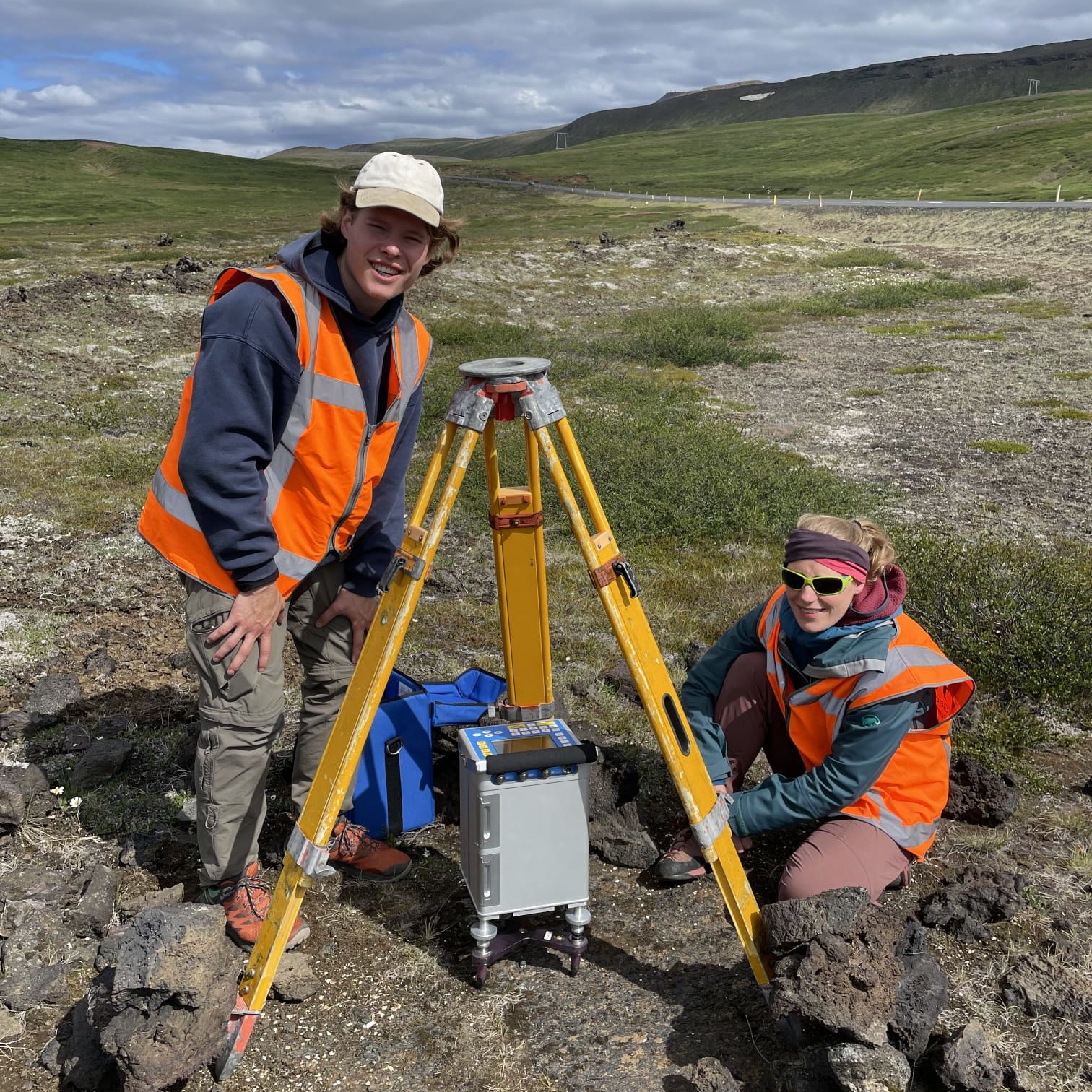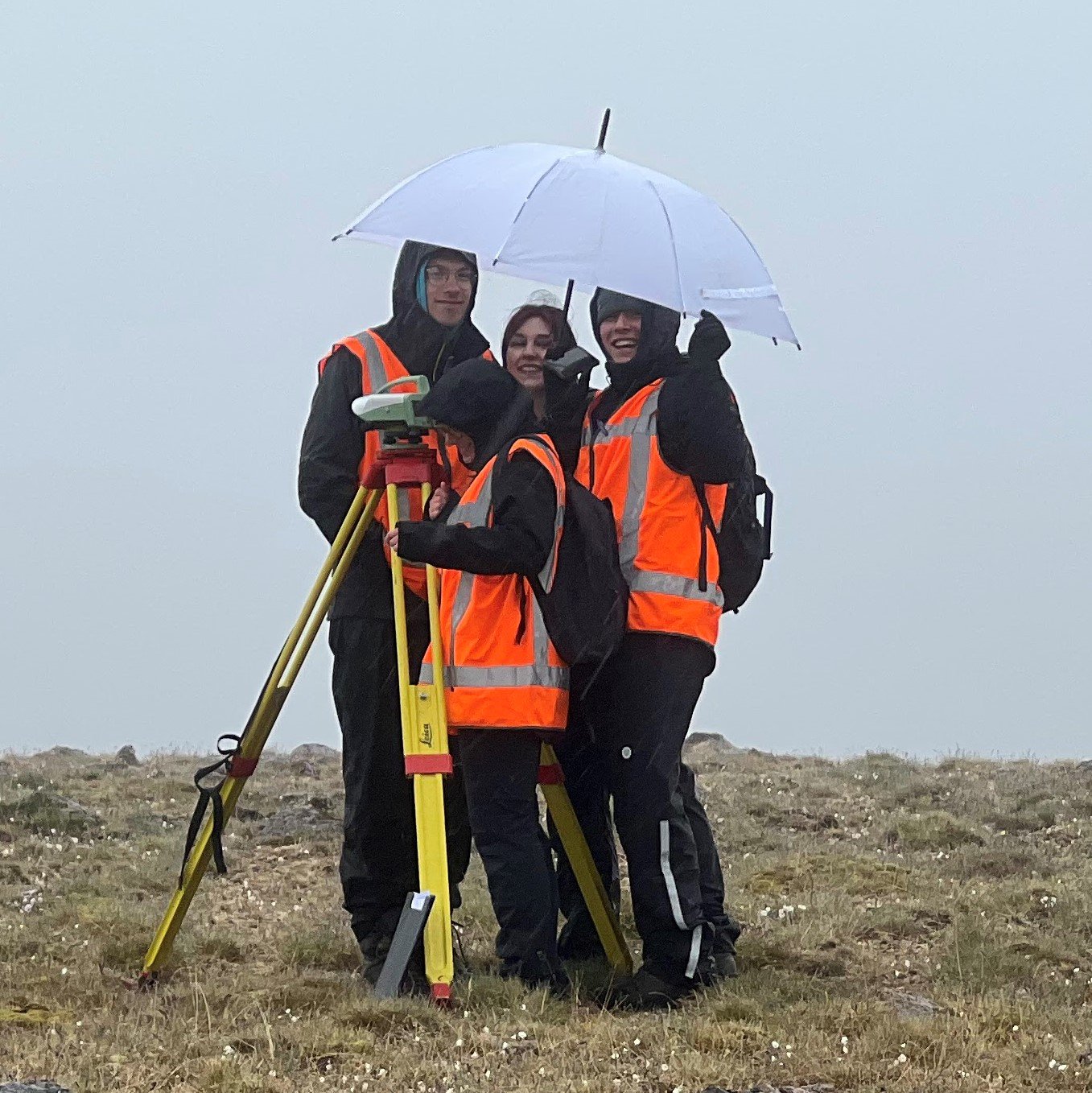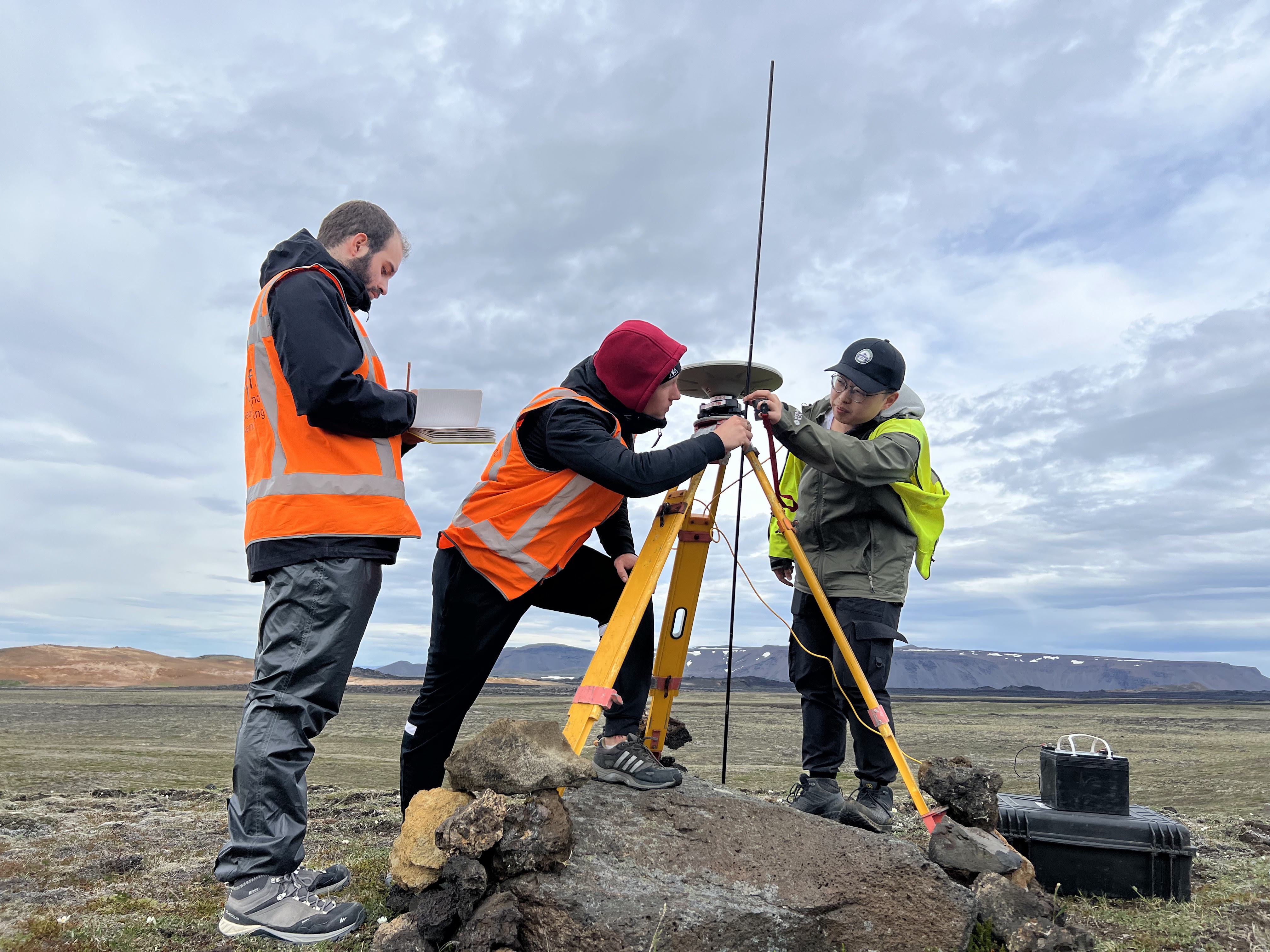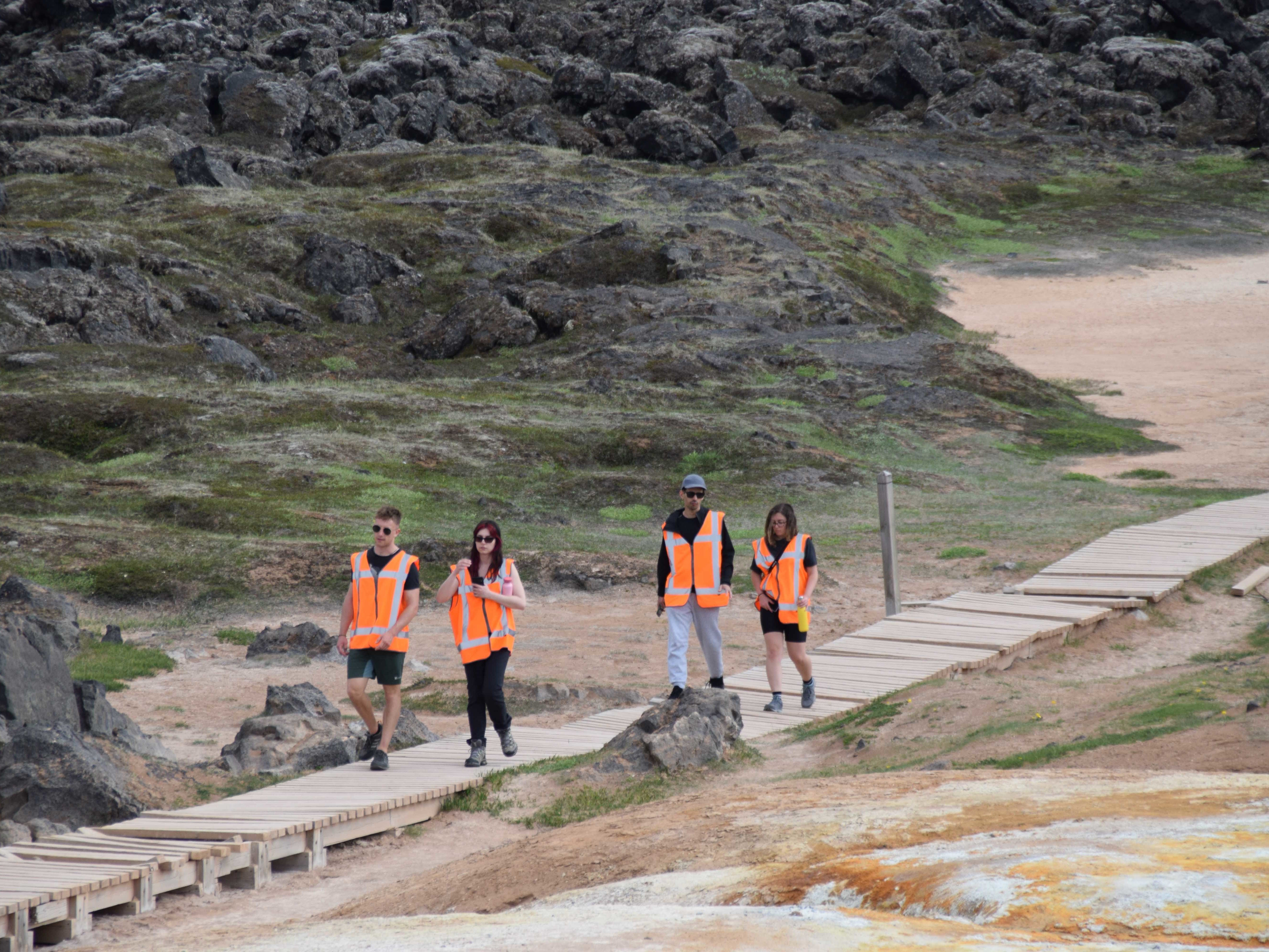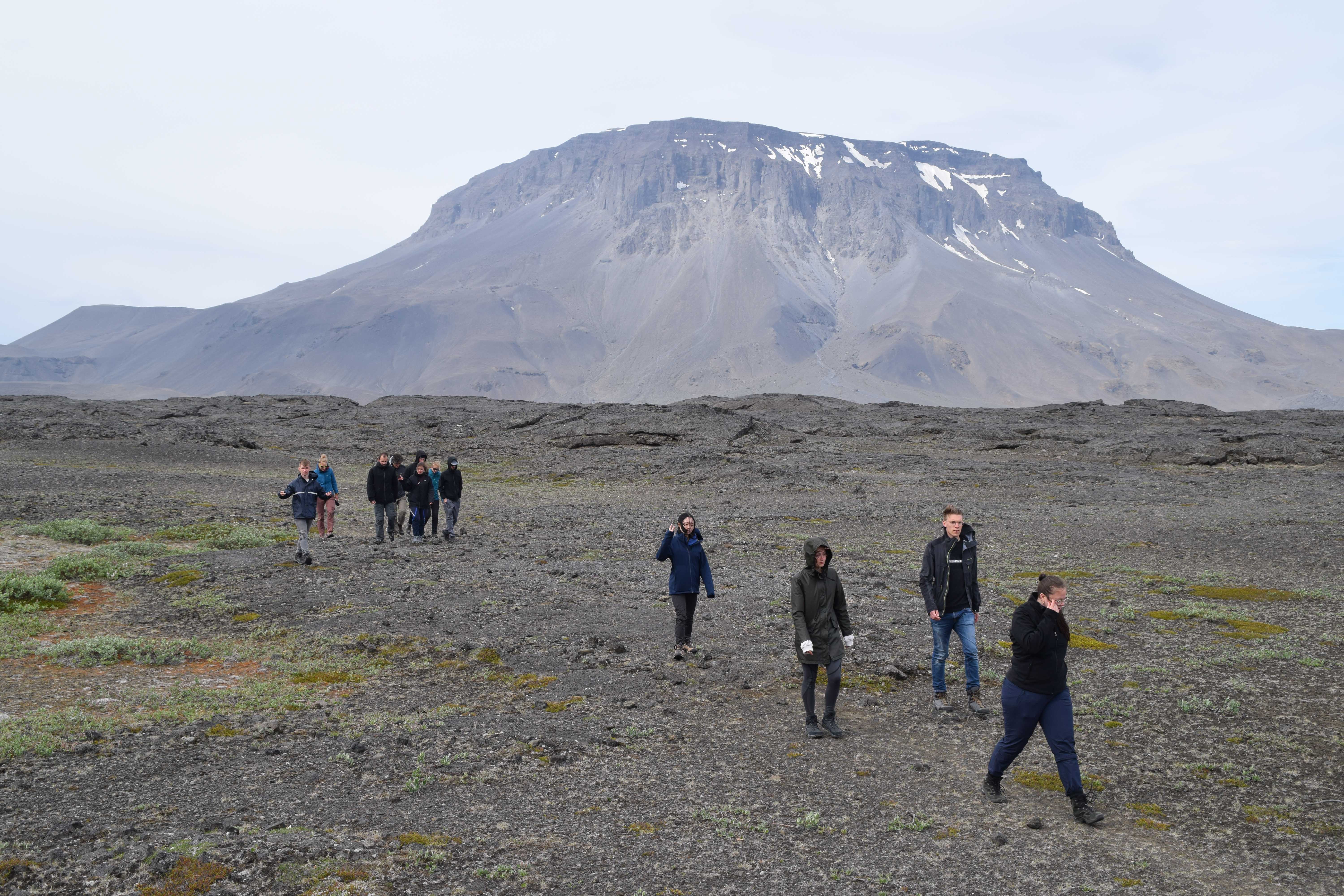Julian Biesheuvel and Daniel Blázquez Martín
Where did you go and what did you do?
Julian: For the fieldwork, in the discipline Earth Observation, we went to Iceland to an area that is governed by geological and anthropogenic processes that affect the (sub)surface. The objective of this fieldwork was to separate the geological processes, such as plate spreading and volcanic activities, from the anthropogenic processes such as a geothermal activity. The main research question focuses on the understanding of how geothermal activities affect the area.
To answer this question, we would like to know if in the area of geothermal power plant, the ground is either subsiding or uplifting. Ground deformations such as subsidence or uplift can be measured with a variety of observation techniques, such as InSAR, GNSS, and levelling. Together with gravimetry, that measures changes in the gravitational field due to mass fluxes, we were able to infer the geological processes in the area of interest.
Daniel: Every member of the group had to take measurements with all the techniques that we had available which were Levelling, GPS and Gravimetry. After that, data analysis and interpretation of the measurements were required to extract value out of the data. For this, different subgroups took care of the processing, focusing only on one technique each. This way we tried to understand different deformation signals: anthropogenic, volcanic, isostatic adjustment due to deglaciation and tectonic plate displacement.
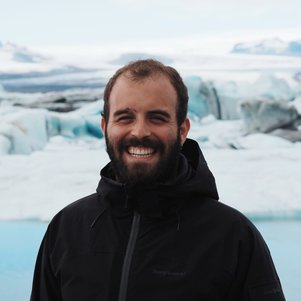
Daniel Blázquez Martín
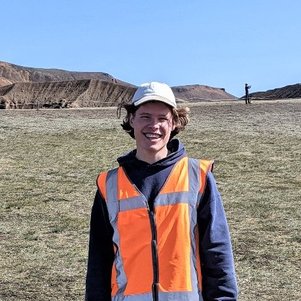
Julian Biesheuvel
What did you learn?
Julian: Normally, in class we are offered the data by the teachers, or we gather it ourselves from the internet. Now, during the fieldwork, it was up to us to gather the data by positioning GNSS stations in the field, doing gravimetry measurements, and levelling. Before we could do this, we had to determine at which locations we wanted to do the measurements. Based on campaigns from previous years, and literature, we decided which benchmarks were of interest to us.
From this process I learnt how to design a measuring campaign and do the actual measurements myself, and what kind of challenges I might face in this process. Knowing these things provides me with a better understanding of how to process, model, and interpret data of this kind.
Daniel: I learnt how different measuring techniques can be implemented and combined in order to observe a certain process of interest. On top of that, learning about planning and organization, group dynamics and specific technical skills for the different technologies were main parts of the fieldwork. It was an amazing experience.
What did you enjoy the most?
Julian: I enjoyed everything about the fieldwork in Iceland. Being there, in an area that I had previously studied, doing the measurements myself, and afterwards processing the data, was enjoyable. To observe, and experience firsthand, the complete chain of processes that are involved in a project like this, is insightful and informative. It amazes me how different geological processes have (de)formed the area and are keep continuing doing so to the present day. It gave me a new dimension of understanding processes that I would have previously only studied on a computer screen.
Daniel: The colleagues, the experts that helped us during the process and the topic of research created an environment that, in combination with the Iceland's landscape, made the experience very rich , interesting and motivating. For example, in the house where we stayed, there were PHd students, technicians and Professors that were experts on gravimetry, volcanism and GPS. They worked with us to organise the daily measuring plan, the set-up of the stations, and also to process and interpret our measured data. The experience, in general, provides multiple opportunities to learn about exciting topics related to Earth Sciences like volcanism, glaciology or anthropogenic activity due to geothermal activity, and enjoy all the options the fieldwork and Iceland can offer.
Photos from Julian Biesheuvel, Paco Lopez Dekker, and Wietske Brouwer

